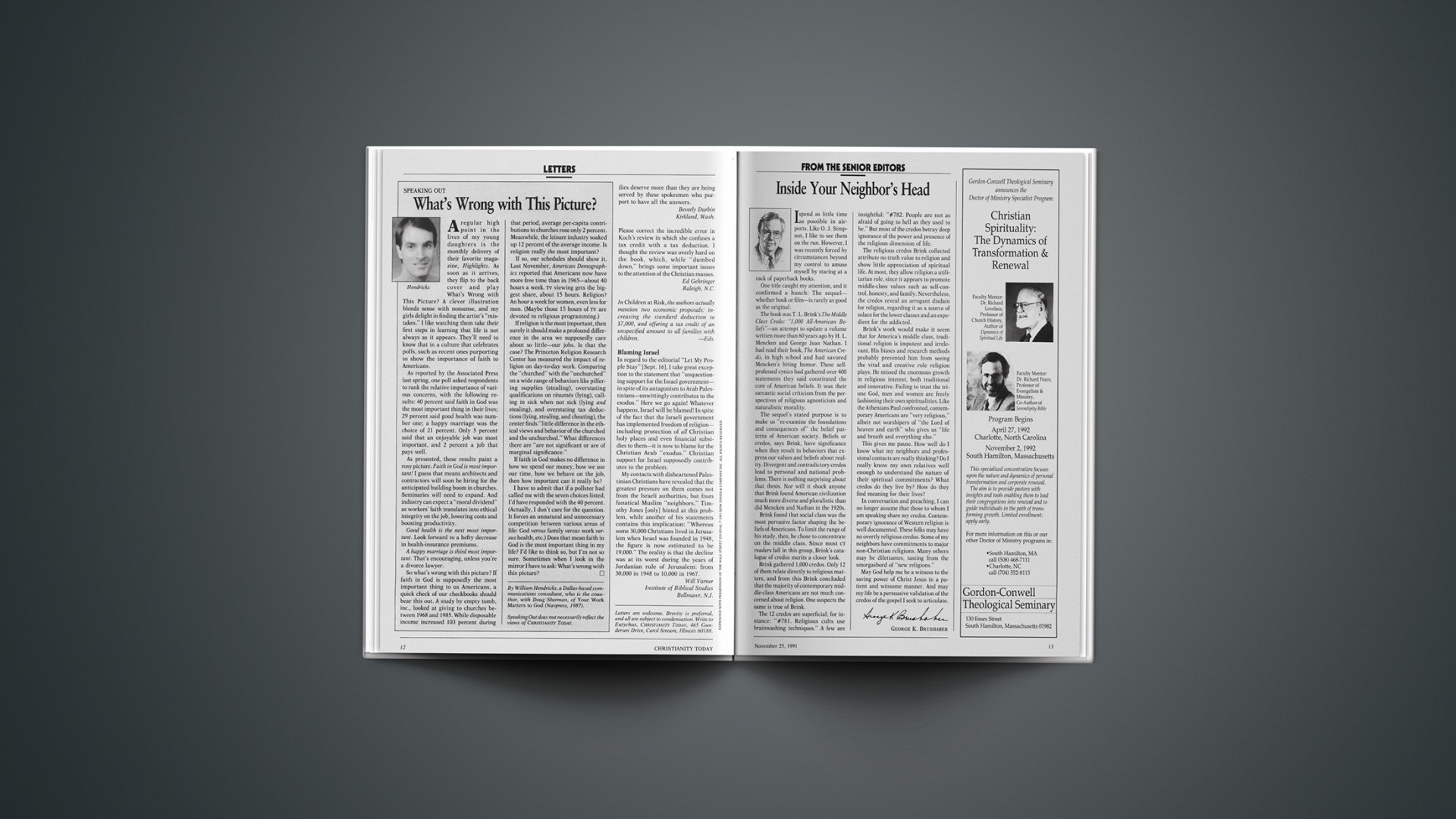I spend as little time as possible in airports. Like O. J. Simpson, I like to see them on the run. However, I was recently forced by circumstances beyond my control to amuse myself by staring at a rack of paperback books.
One title caught my attention, and it confirmed a hunch: The sequel—whether book or film—is rarely as good as the original.
The book was T. L. Brink’s The Middle Class Credo: “1,000 All-American Beliefs”—an attempt to update a volume written more than 60 years ago by H. L. Mencken and George Jean Nathan. I had read their book, The American Credo, in high school and had savored Mencken’s biting humor. These self-professed cynics had gathered over 400 statements they said constituted the core of American beliefs. It was their sarcastic social criticism from the perspectives of religious agnosticism and naturalistic morality.
The sequel’s stated purpose is to make us “re-examine the foundations and consequences of” the belief patterns of American society. Beliefs or credos, says Brink, have significance when they result in behaviors that express our values and beliefs about reality. Divergent and contradictory credos lead to personal and national problems. There is nothing surprising about that thesis. Nor will it shock anyone that Brink found American civilization much more diverse and pluralistic than did Mencken and Nathan in the 1920s.
Brink found that social class was the most pervasive factor shaping the beliefs of Americans. To limit the range of his study, then, he chose to concentrate on the middle class. Since most CT readers fall in this group, Brink’s catalogue of credos merits a closer look.
Brink gathered 1,000 credos. Only 12 of them relate directly to religious matters, and from this Brink concluded that the majority of contemporary middle-class Americans are not much concerned about religion. One suspects the same is true of Brink.
The 12 credos are superficial; for instance: “#781. Religious cults use brainwashing techniques.” A few are insightful: “#782. People are not as afraid of going to hell as they used to be.” But most of the credos betray deep ignorance of the power and presence of the religious dimension of life.
The religious credos Brink collected attribute no truth value to religion and show little appreciation of spiritual life. At most, they allow religion a utilitarian role, since it appears to promote middle-class values such as self-control, honesty, and family. Nevertheless, the credos reveal an arrogant disdain for religion, regarding it as a source of solace for the lower classes and an expedient for the addicted.
Brink’s work would make it seem that for America’s middle class, traditional religion is impotent and irrelevant. His biases and research methods probably prevented him from seeing the vital and creative role religion plays. He missed the enormous growth in religious interest, both traditional and innovative. Failing to trust the triune God, men and women are freely fashioning their own spiritualities. Like the Athenians Paul confronted, contemporary Americans are “very religious,” albeit not worshipers of “the Lord of heaven and earth” who gives us “life and breath and everything else.”
This gives me pause. How well do I know what my neighbors and professional contacts are really thinking? Do I really know my own relatives well enough to understand the nature of their spiritual commitments? What credos do they live by? How do they find meaning for their lives?
In conversation and preaching, I can no longer assume that those to whom I am speaking share my credos. Contemporary ignorance of Western religion is well documented. These folks may have no overtly religious credos. Some of my neighbors have commitments to major non-Christian religions. Many others may be dilettantes, tasting from the smorgasbord of “new religions.”
May God help me be a witness to the saving power of Christ Jesus in a patient and winsome manner. And may my life be a persuasive validation of the credos of the gospel I seek to articulate.










